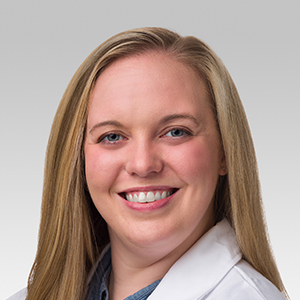What Are My Options for Emergency Contraception?
A Clinician’s Expertise on IUDs and Morning-After Pills
Updated April 2024
Birth control can help prevent unwanted pregnancies. However, birth control is not 100% effective. In cases where other forms of birth control fail, or birth control is not used at all, emergency contraception can help prevent an unwanted pregnancy.
Ashley Turner, MD, a specialist in Obstetrics and Gynecology at Northwestern Medicine, notes some situations in which you may want to consider using emergency contraception:
Emergency contraception is not an abortion or termination.— Ashley Turner, MD
- You had receptive vaginal sex without a condom or any other form of contraception.
- You had receptive vaginal sex with a condom that broke or slipped, and you are not on any other form of contraception.
- You had receptive vaginal sex after improperly using another form of contraception, such as forgetting a dose of your birth control pills.
Dr. Turner also says it is important to remember that non-barrier contraception, such as birth control pills, does not necessarily prevent sexually transmitted infections.
Know the Types
There are two types of emergency contraception:
- Intrauterine devices (IUDs) are placed inside your uterus by a clinician. While IUDs are often used to proactively prevent pregnancy, you can also get a copper IUD (or non-hormonal IUD) to prevent pregnancy after sex.
- IUDs are the most effective form of emergency contraception.
- They work if they are placed up to five days after sex occurs. They can continue preventing pregnancy for up to 8 to 12 years.
- Emergency contraception pills (ECPs), or "morning-after" pills, can be taken up to five days after sex, but they are most effective the sooner you take them. You can choose from two types of ECPs:
- Pills with ulipristal acetate are the most effective ECP. You need a prescription from a clinician to get this pill.
- Pills with levonorgestrel are available in most drugstores, pharmacies and large grocery stores without a prescription.
Key Facts About Emergency Contraception
Dr. Turner explains some things that many patients often do not know.
- ECPs and IUDs do not have to be used the day after having sex to help you. They are more effective the sooner they are used, but if you are not able to get your treatment until a couple days after having unprotected sex, you can still use emergency contraception.
- Some biological factors may impact the effectiveness of your emergency contraception. For example, some studies suggest that women* with obesity experience a higher chance of pregnancy after emergency contraception use when compared to those who do not have obesity.
- Emergency contraception is not an abortion or termination. It prevents the pregnancy from occurring in the first place through effects on your ovulation. It does not work if pregnancy has already occurred.
Above all, Dr. Turner says to know that, no matter what your reproductive care needs are, you have options.
"If you need medical attention or a procedure related to emergency contraception, call your care team's office and let them know," she says. "They will do their absolute best to get you in for what you need."
Learn more about birth control.
*Scientists do not always collect information from participants about gender identity. To avoid misrepresenting the results of this research, we use the same terminology as the study authors.






